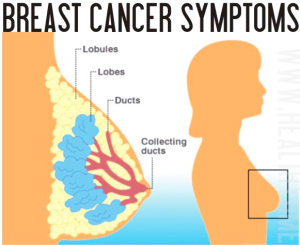Visit and Join the WeHeal Breast Cancer Community.
For more information, see: WebMD | Wikipedia
News Feed: Breast Cancer News Feed
Patient Resources and Related Organizations: Cancercare.org | NBCI | Breastcancer.org
News and Media: News-Medical.net
Clinical trials: Clinicaltrials.gov | In Clinical Trials | EU Clinical Trials Register | WeHeal Guide to Researching Clinical Trials
 Breast Cancer (childhood, male, pregnancy). Cancer that forms in tissues of the breast, usually the ducts (tubes that carry milk to the nipple) and lobules (glands that make milk). It occurs in both men and women, although male breast cancer is rare. Common kinds of breast cancer are—
Breast Cancer (childhood, male, pregnancy). Cancer that forms in tissues of the breast, usually the ducts (tubes that carry milk to the nipple) and lobules (glands that make milk). It occurs in both men and women, although male breast cancer is rare. Common kinds of breast cancer are—
Breast Cancer – Triple Negative
Breast Cancer- Triple Positive
• Ductal carcinoma. The most common kind of breast cancer. It begins in the cells that line the milk ducts in the breast, also called the lining of the breast ducts. ◦Ductal carcinoma in situ (DCIS). The abnormal cancer cells are only in the lining of the milk ducts, and have not spread to other tissues in the breast.Breast Cancer – Ductal Carcinoma in situ (DCIS)
• Invasive ductal carcinoma. The abnormal cancer cells break through the ducts and spread into other parts of the breast tissue. Invasive cancer cells can also spread to other parts of the body.
• Lobular carcinoma. In this kind of breast cancer, the cancer cells begin in the lobes, or lobules, of the breast. Lobules are the glands that make milk. ◦Lobular carcinoma in situ (LCIS). The cancer cells are found only in the breast lobules. Lobular carcinoma in situ, or LCIS, does not spread to other tissues.
• Invasive lobular carcinoma. Cancer cells spread from the lobules to the breast tissues that are close by. These invasive cancer cells can also spread to other parts of the body.
Visit and Join the WeHeal Breast Cancer Community.
WeHeal is very grateful to our valued sources of information which include Wikipedia, WebMD, ClinicalTrials.gov, Cancer.gov, Infoplease, and the US CDC (Center for Disease Control).